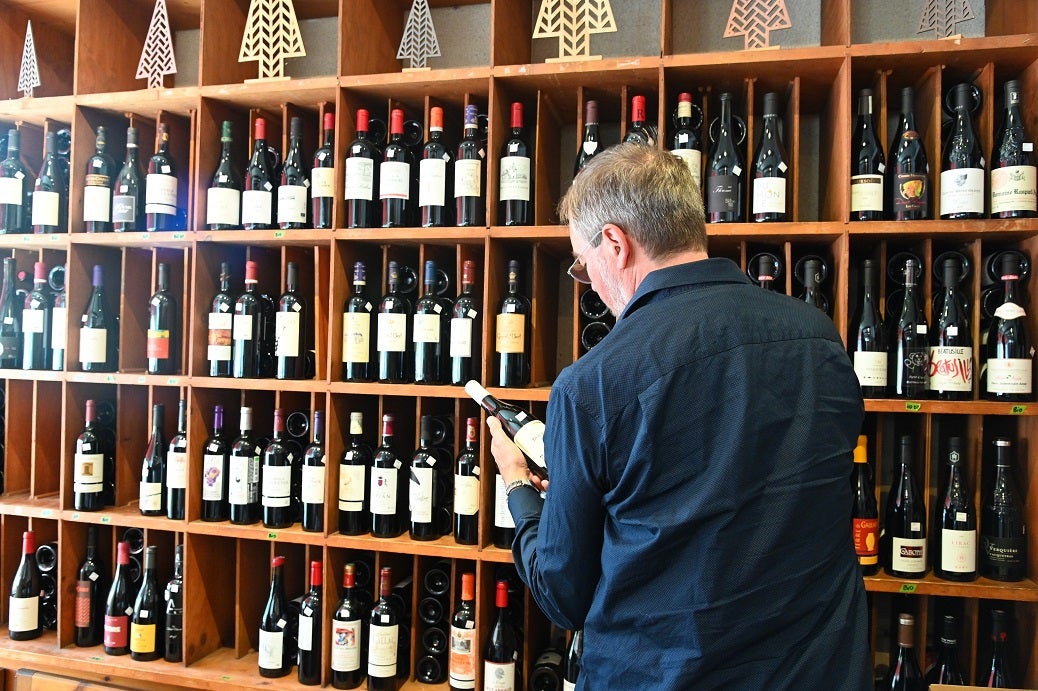
The European Commission today (22 March) proposed “common criteria” businesses should follow to tackle false ‘green’ claims made on products sold in the EU.
Under the plans, when companies choose to make an environment-related claim about their product or service, they will have to “respect minimum norms on how they substantiate these claims and how they communicate them”, Brussels said in a statement.
In the spotlight are specific claims and the “proliferation” of labels being used on products, the Commission said.
Brussels estimates there are at least 230 different labels in place across the bloc but says “almost half” of the verification processes behind those labels are “either weak or not carried out”.
“Green claims are everywhere: ocean-friendly t-shirts, carbon-neutral bananas, bee-friendly juices, 100% CO2-compensated deliveries and so on. Unfortunately, way too often these claims are made with no evidence and justification whatsoever. This opens the door to greenwashing and puts companies making genuinely sustainable products at a disadvantage,” Frans Timmermans, European Commission executive vice-president, said.
“Many Europeans want to contribute to a more sustainable world through their purchases. They need to be able to trust the claims made. With this proposal, we give consumers the reassurance that when something is sold as green, it actually is green.”
The rules will cover all claims about “the environmental impacts, aspects or performance of a product, service or the trader itself”, the Commission said.
Businesses’ green claims should be “science-based”, the proposals state.
Environmental claims and labels “will have to be third-party verified and certified” before the claim can be used. The verifying party must be “an officially accredited independent body”. Under the plans, member states will “lay down the rules on penalties”, which can include fines, a “confiscation of revenues” or a temporary exclusion from public procurement and access to public funding for up to 12 months.
Brussels pointed to a 2020 study it said showed more than half (53.3%) of environmental claims “provide vague, misleading or unfounded information” about the environmental characteristics of products sold across the EU and “across a wide range of product categories”.
The research also showed 40% of claims were “unsubstantiated”, the Commission added.
“By forbidding claims that do not meet the minimum criteria, this measure will contribute to improving the reliability of the information provided to consumers and therefore will have a positive impact on the decision-making of consumers facilitating the choice of products offering better environmental performance, and thus an increased consumer welfare,” the EU executive said today. “With certain consumers purchasing products that will be truly better for the environment, it is estimated that the impacts on the environment will be highly positive.”
Earlier this month, European juice major Eckes-Granini announced it would stop using the term CO2 neutral on its labels, after consumer rights organisation Foodwatch called it misleading.
Eckes-Granini told Just Drinks it had made the decision in advance of the campaign by Foodwatch, and said it would change the packaging once existing supplies had been used up.
In February, a court in Sweden banned European dairy major Arla Foods from using the term “net-zero climate footprint” in the marketing of its products sold in the country.
Reaction to EU plans for green claims
Changing Markets Foundation, a UK-based NGO that seeks to promote a more sustainable economy, said the proposals would mean a “significant reduction of misleading green claims and inadequate certification schemes on the EU market”.
However, the organisation was disappointed the plans do not go further.
“It is disappointing that the Commission stopped short of banning generic climate claims – a prevalent greenwashing tactic,” Nusa Urbancic, campaigns director at Changing Markets Foundation, said.
The NGO also argued there were drawbacks to the Commission not including the Product Environmental Footprint as a way to measure products’ environmental impacts.
In a statement, Changing Markets Foundation said: “While the proposal is clear that any green claims must be science-based, use company-specific data and not overlook any environmental impacts, there is a risk that we will end up with an array of methodologies that will lead to a confusion of different ways to communicate claims. For this reason, Changing Markets is calling for any methodology to be used at the EU market to be pre-approved by the European Commission.”
The Commission has excluded from its proposals green claims already covered by existing EU rules, such as the EU Ecolabel or the organic food logo.
The rules, pulled together as the Green Claims Directive, will be put before the European Parliament and the Council of the European Union.
A spokesperson for FoodDrinkEurope told Just Drinks the plans contain “several positive aspects, among which is the support to SMEs”.
However, the spokesperson added: “Its success will depend on striking the right balance between third-party verification and bureaucratic red tape.
“As a directive, the proposal leaves a lot of room for member state interpretation, which could create different approaches and divergence for businesses trading across borders.
“We share the Commission’s goal to create robust, simple and effective tools to enable informed consumer choices and we stand ready to continue working together towards this end. We firmly support the purpose of the Commission’s proposal which is to avoid misleading information and greenwashing, while ensuring a level-playing field among businesses.
“Establishing harmonised requirements for the voluntary provision of environmental information has the potential to incentivise businesses to continue improving their environmental footprint and increase consumer trust.”
In January, the UK’s Competition and Markets Authority (CMA) said it would scrutinise ‘green’ claims on food and drink product labels to clamp down on potential greenwashing.
Its scrutiny of food and drink products labels will analyse environmental claims made about these items – both online and in-store – to consider whether companies are complying with UK consumer protection law.




